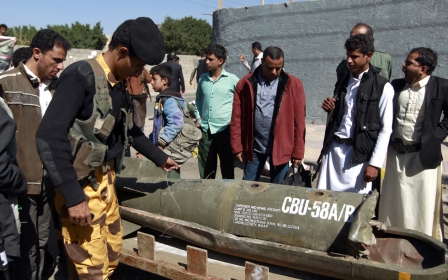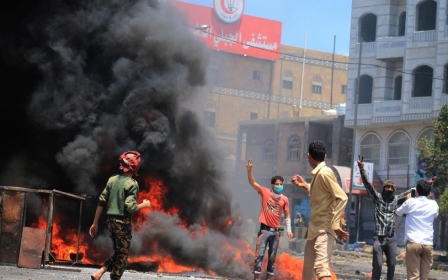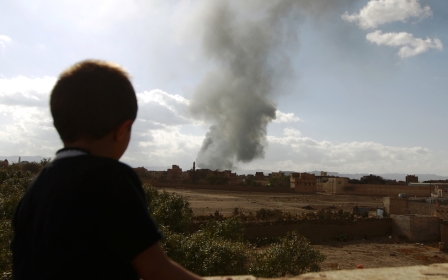Red Cross medical aid enters Yemen's besieged Taiz

The International Committee of the Red Cross said Saturday that it had delivered medical supplies to Taiz, the second desperately needed shipment to Yemen's rebel-besieged third city in a week.
The ICRC "has managed to enter the city of Taez, one of the worst-affected places in Yemen’s fighting, and deliver life-saving medical supplies," a statement said, using an alternative spelling of the city's name.
It was the first time since August last year that an ICRC team had been able to enter the city, where forces loyal to President Abd Rabbuh Mansour Hadi are under siege by Houthi rebels and their allies.
"This is a breakthrough, and we hope that today's operation will be followed by many more to come," said Antoine Grand, head of the ICRC delegation in Yemen.
"We have provided three tonnes of medical supplies including surgical items, intravenous fluids and anaesthetic supplies that will help treat hundreds of wounded [people]," he said.
"All of these items are in high demand by the hospitals in Taiz that continue to receive a daily influx of wounded people."
The ICRC delivery came after the World Health Organization said on Wednesday that it had delivered more than 20 tonnes of medical supplies to Taiz in its first convoy into the city in eight weeks.
Some 200,000 civilians are caught up in the fighting in Taiz. In November, pro-government forces and their supporters in a Saudi-led coalition announced a major offensive to try to break the siege but it has made little headway.
In early January, Doctors Without Borders said it had made the first "significant" delivery of medical supplies to hospitals in the city since August.
That came a few days after a Saudi charity said Saudi-led coalition aircraft had dropped 40 tonnes of medical equipment and food to the city.
Since the coalition launched its intervention in March last year, pro-government forces have pushed the rebels out of five southern provinces but they have made slow progress in the north, which remains largely in rebel hands.
The United Nations says more than 6,100 people have been killed in the fighting, at least half of them civilians.
Middle East Eye propose une couverture et une analyse indépendantes et incomparables du Moyen-Orient, de l’Afrique du Nord et d’autres régions du monde. Pour en savoir plus sur la reprise de ce contenu et les frais qui s’appliquent, veuillez remplir ce formulaire [en anglais]. Pour en savoir plus sur MEE, cliquez ici [en anglais].




